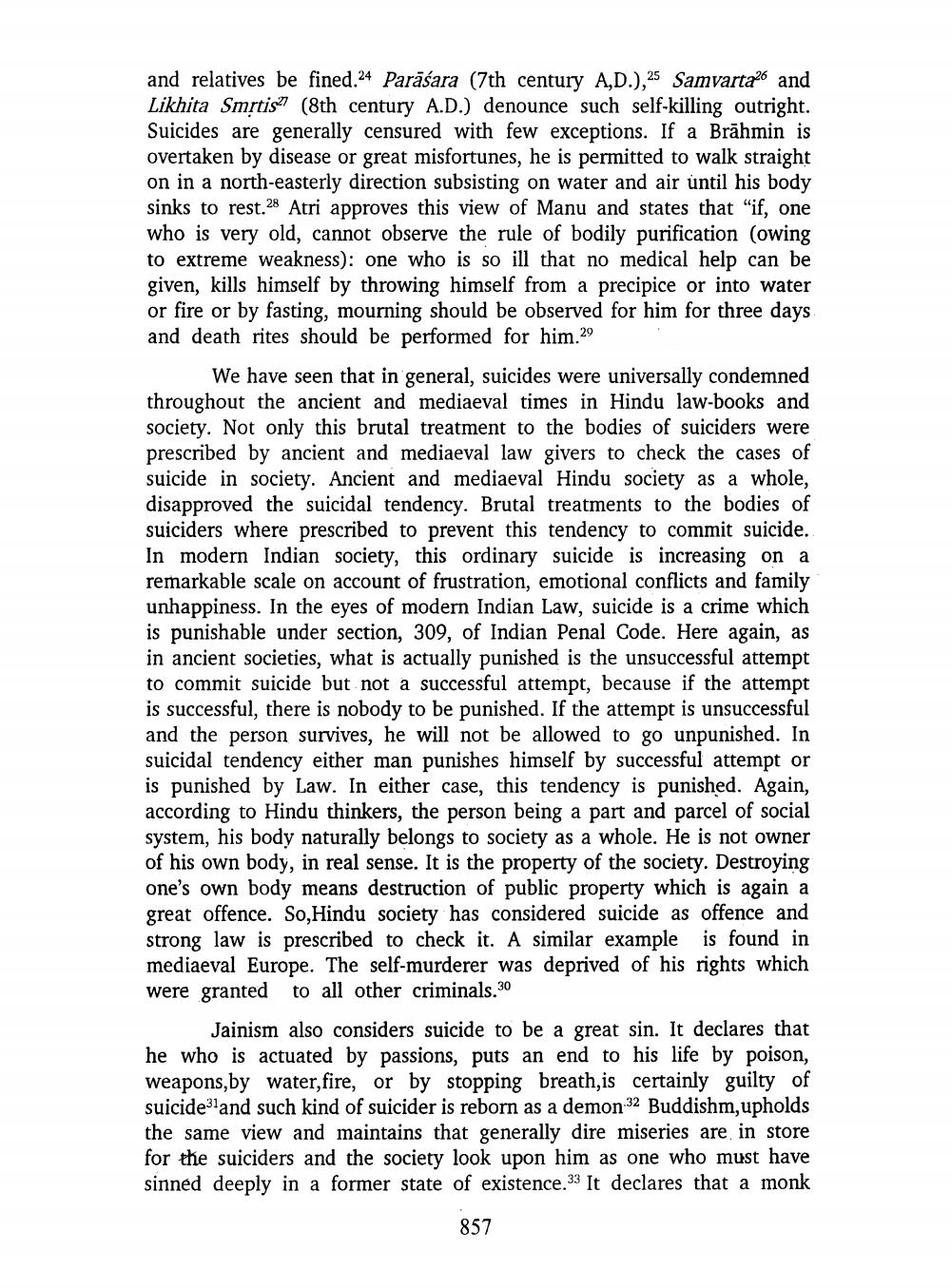________________
and relatives be fined.24 Parāśara (7th century A,D.),25 Samvarta26 and Likhita Smrtis? (8th century A.D.) denounce such self-killing outright. Suicides are generally censured with few exceptions. If a Brāhmin is overtaken by disease or great misfortunes, he is permitted to walk straight on in a north-easterly direction subsisting on water and air until his body sinks to rest.28 Atri approves this view of Manu and states that "if, one who is very old, cannot observe the rule of bodily purification (owing to extreme weakness): one who is so ill that no medical help can be given, kills himself by throwing himself from a precipice or into water or fire or by fasting, mourning should be observed for him for three days and death rites should be performed for him.29
We have seen that in general, suicides were universally condemned throughout the ancient and mediaeval times in Hindu law-books and society. Not only this brutal treatment to the bodies of suiciders were prescribed by ancient and mediaeval law givers to check the cases of suicide in society. Ancient and mediaeval Hindu society as a whole, disapproved the suicidal tendency. Brutal treatments to the bodies of suiciders where prescribed to prevent this tendency to commit suicide. In modern Indian society, this ordinary suicide is increasing on a remarkable scale on account of frustration, emotional conflicts and family unhappiness. In the eyes of modern Indian Law, suicide is a crime which is punishable under section, 309, of Indian Penal Code. Here again, as in ancient societies, what is actually punished is the unsuccessful attempt to commit suicide but not a successful attempt, because if the attempt is successful, there is nobody to be punished. If the attempt is unsuccessful and the person survives, he will not be allowed to go unpunished. In suicidal tendency either man punishes himself by successful attempt or is punished by Law. In either case, this tendency is punished. Again, according to Hindu thinkers, the person being a part and parcel of social system, his body naturally belongs to society as a whole. He is not owner of his own body, in real sense. It is the property of the society. Destroying one's own body means destruction of public property which is again a great offence. So,Hindu society has considered suicide as offence and strong law is prescribed to check it. A similar example is found in mediaeval Europe. The self-murderer was deprived of his rights which were granted to all other criminals.30
Jainism also considers suicide to be a great sin. It declares that he who is actuated by passions, puts an end to his life by poison, weapons, by water,fire, or by stopping breath, is certainly guilty of suicide?land such kind of suicider is reborn as a demon 32 Buddishm, upholds the same view and maintains that generally dire miseries are in store for the suiciders and the society look upon him as one who must have sinned deeply in a former state of existence.33 It declares that a monk
857




